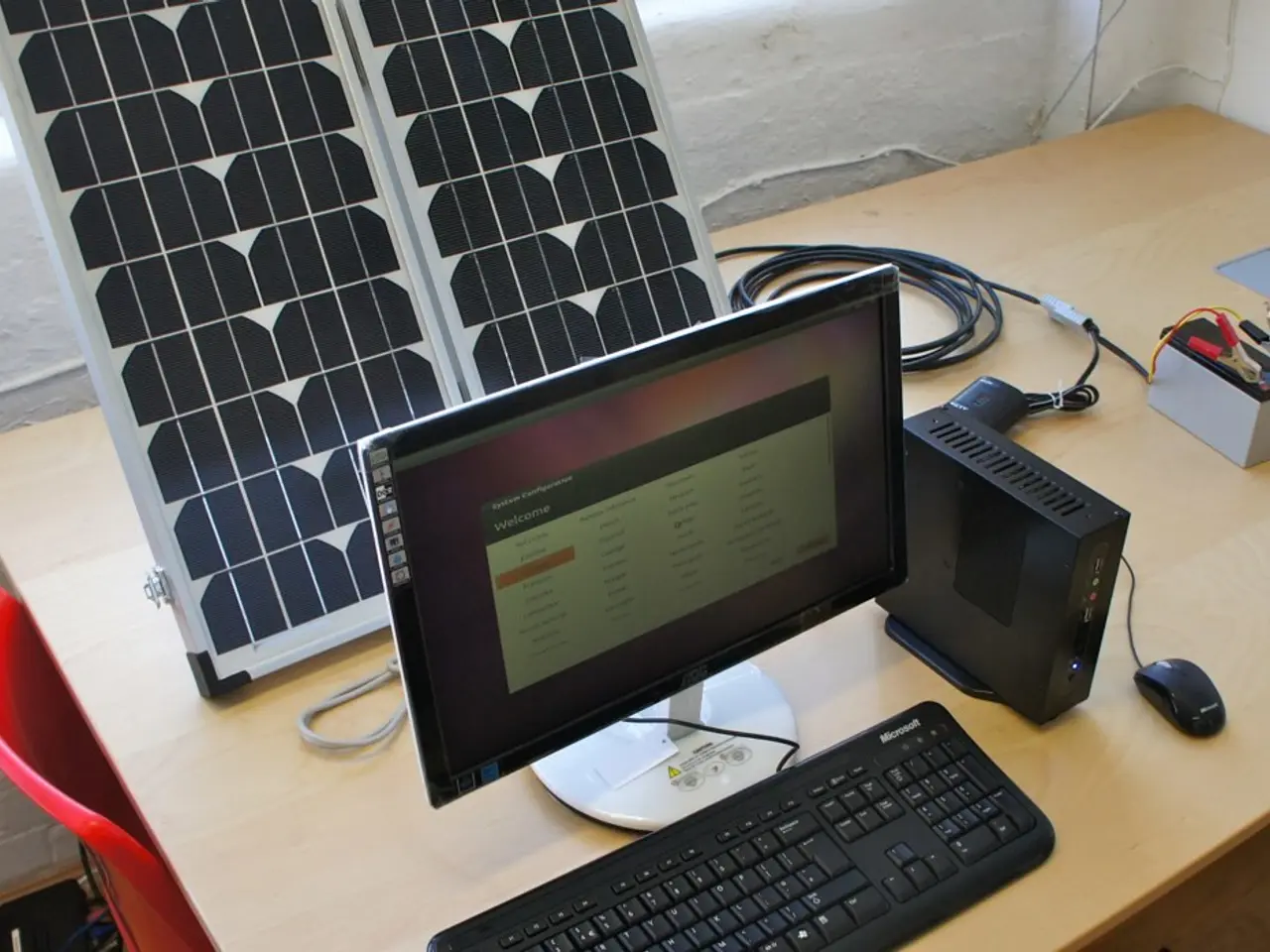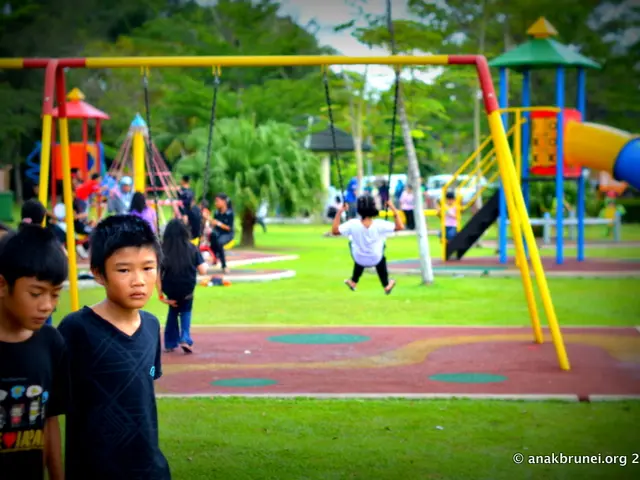Solar panel lifespan: An exploration
Solar panels, a vital component of renewable energy, are designed to last between 25 and 35 years, during which they continue to generate electricity but with gradually decreasing efficiency [1][2][3]. After about 25 years, most panels operate at approximately 80-85% of their original capacity, degrading at roughly 0.5% to 0.8% per year [1].
The lifespan and performance of solar panels are influenced by several key factors.
Quality of the Panels
Higher-quality panels from reputable manufacturers tend to last longer and degrade more slowly. Panels with strong warranties often indicate better reliability [2][4].
Environmental Conditions
Harsh conditions such as extreme temperatures, heavy snow, hail, strong winds, dust, dirt, and saltwater (in marine environments) can accelerate panel wear and reduce durability [2].
Maintenance
Regular cleaning to remove dust, dirt, bird droppings, and debris is essential. Neglecting maintenance can reduce light absorption and cause long-term damage, decreasing efficiency and lifespan [2][4].
Installation Quality
Proper mounting, angling, and secure installation protect panels from physical damage caused by wind or structural shifting, which supports longer life and consistent performance [2][4].
Type of Solar Panel
Different panel types have different durability levels. For example, monocrystalline panels are generally more efficient and durable compared to polycrystalline or thin-film varieties, commonly preferred for lasting performance [2].
Solar panels in colder climates may experience additional stress due to snow and ice. The right time to replace solar panels is when they no longer yield enough power to meet electricity costs.
While most solar panels are tested to resist hail and heavy winds, consistent exposure to extreme weather can shorten their lifespan. Extreme temperatures, sunlight, and UV light can affect the lifespan and performance of solar panels.
Continuing to use solar panels past their useful life is still an option for those who need reduced energy output for their needs. Replacing solar panels with newer, more efficient models could be beneficial for those aiming to offset energy bills completely.
Inverters and batteries, supporting components of solar energy systems, have shorter lifespans compared to solar panels. Regular maintenance of these components is essential for the overall efficiency and longevity of a solar energy system.
High-quality solar panels from reputable brands are more durable, perform better, and degrade at a slower rate. Comprehensive warranties provide an extra layer of assurance for solar panel reliability and performance. Correct installation can help reduce the chances of rain corrosion, vibration damage, and other degradation issues.
Solar panels are incredibly resilient, providing decades of reliable use even beyond their useful life. Excessive heat can reduce solar panel efficiency, although most modern panels are designed to perform well in high temperatures.
In summary, while solar panels rarely fail completely after 25-30 years, their efficiency declines gradually. High-quality panels, proper installation, suitable environmental conditions, and good maintenance extend their productive lifespan, sometimes beyond 30 years [1][2][3][4].
- Higher-quality solar panels from reputable manufacturers, which often come with strong warranties, are proven to last longer and degrade more slowly than other panels, ensuring better reliability.
- Harsh environmental conditions, such as extreme temperatures, heavy snow, hail, strong winds, dust, dirt, and saltwater, can accelerate solar panel wear and reduce durability.
- Neglecting maintenance, like not cleaning solar panels regularly to remove dust, dirt, bird droppings, and debris, can reduce light absorption, cause long-term damage, and decrease efficiency and lifespan.
- Proper mounting, angling, and secure installation protect solar panels from physical damage caused by wind or structural shifting, which supports longer life and consistent performance.
- Different solar panel types, like monocrystalline panels, are generally more efficient and durable compared to polycrystalline or thin-film varieties, making them preferred for lasting performance.
- Solar panels in colder climates may experience additional stress due to snow and ice, which has an impact on their lifespan and performance.
- Inverters and batteries, which are supporting components of a solar energy system, have shorter lifespans compared to solar panels, making regular maintenance essential for the overall efficiency and longevity of a solar energy system.




